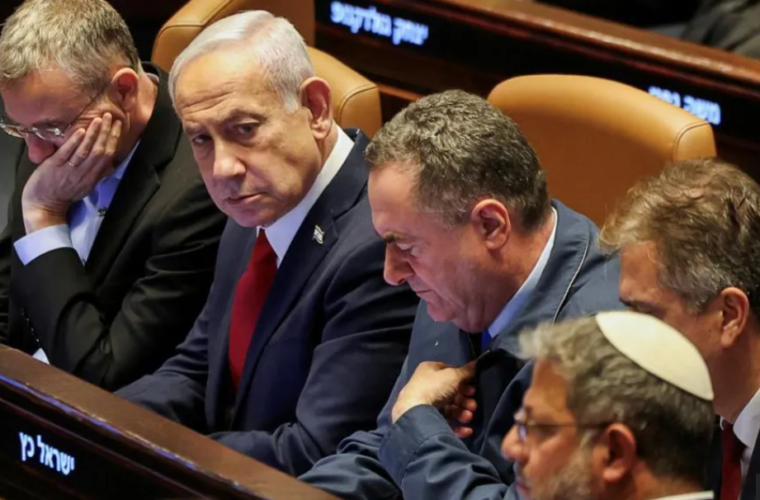Israeli Prime Minister Benjamin Netanyahu said on Monday that Israel is sliding into international isolation amid its nearly two-year offensive in the Gaza Strip, and will need to become self-reliant.
Speaking at an economic conference in Jerusalem, Netanyahu blamed anti-Israel discourse in the media and on social networks, saying: “Israel is entering a kind of isolation.”
“We could find ourselves in a situation where we would be blocked in the industrial aspect, not just in research and development, but also in actual production,” he said.
He said Israel needs to adapt to the new isolation and develop its own production capabilities, noting mainly the weapons industry. “We can find ourselves in a situation where our weapons industries would be blocked (for exports),” he said. “We will have to develop arms industries here. We will have to be Athens and super-Sparta.”
“Israel’s international situation is changing,” he added, warning that it “threatens us with the beginnings of economic sanctions and problems importing weapons and weapon parts.”
Opposition leader Yair Lapid denounced Netanyahu’s remarks as “a crazy statement,” saying the isolation is the result of “Netanyahu’s and his government’s failed and flawed policies.”
Spain has cancelled a deal worth about 700 million euros to purchase rocket launchers from Elbit Systems, Israel’s largest privately owned defense company, according to a report on Monday by Israel’s Haaretz newspaper. It marks the second Israeli arms contract scrapped this month by Spain amid the Gaza war.
Israel’s offensive in Gaza has killed more than 64,000 people, devastated the enclave and caused famine. On Aug. 31, the International Association of Genocide Scholars declared that Israel is committing genocide in the enclave.
In November 2024, the International Criminal Court (ICC) issued arrest warrants for Netanyahu and former Defense Minister Yoav Gallant over alleged war crimes and crimes against humanity. The move prompted several countries to reconsider military ties with Israel.
The European Union has also taken steps against Israel. In September 2025, European Commission President Ursula von der Leyen proposed sanctions, including suspending about 32 million Euros in bilateral funds and targeting far-right Israeli cabinet members and West Bank settlers. The European Union remains divided, with Germany, Austria, Hungary, and the Czech Republic generally supporting Israel, while Spain, the Netherlands, and Ireland have criticized its actions.
Several nations have reduced or suspended arms trade with Israel since October 2023, citing concerns over potential violations of international humanitarian law during the Gaza conflict.





